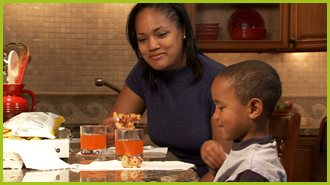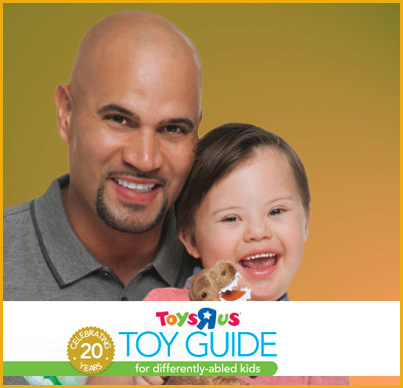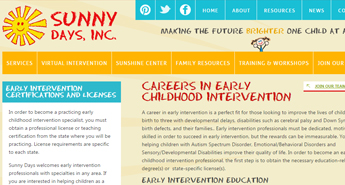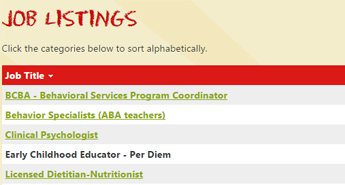



Traveling with children can be difficult, whether you're taking a short trip to visit family or making a long trek for a relaxing family vacation. Children can easily get fussy when they have to sit in the car seat for a while, so go into your trip prepared with these tips to keep your child occupied and increase the chances that your trip will be a positive one!

- Pack a pad of paper and some crayons so your child can draw pictures, practice their letter and number writing, or engage in a game like tic-tac toe with you.
- Sing along to music to help pass the time. You can find sing-a-longs and child friendly music available to borrow at your local library or they can easily be acquired digitally and played right from your smartphone.
- Make sure your child stays hydrated and fed. Children easily get fussy when they get hungry, so pack travel-friendly snacks that won't make a mess in your car, like fruit, dry cereal, water, and juice boxes.
- Plan ahead for potential delays due to traffic or weather. Be sure to pack enough drinks, snacks, and diapers if necessary.
- Most importantly, have reasonable expectations for your children when taking a trip. Stop and take a break to stretch, walk around, and let your child exhaust some of their pent up energy.


Toys "R" Us recently released their annual 20th annual Toy Guide for Differently-Abled Kids. The catalog showcases specially selected toys that aid in skill development of children who have developmental, cognitive, or physical disabilities. Toys "R" Us creates this unique catalog in cooperation with The National Lekotek Center, a non-profit that specializes in assisting parents with therapeutic development and play for special-needs children. Lekotek reviews and labels all toys selected with symbols for the different developmental skills they can aid in, allowing you to search and select toys based on what kind of developmental skill they promote. Fun and learning.
View the toy guide here.



Joyce Salzberg, Co-Founder and CEO of Sunny Days was recently quoted by People & Families Magazine for their Winter 2015 edition about professionals guiding families through the transition to preschool. On the topic of children being eligible to transition to special education preschool services offered by the local school district, she was asked about the lack of assistance to parents during the transition process, she said "Most families need a lot more hand holding in order to get through the transition process...It's like giving a four year old the keys to the car and telling them to drive. These parents are told they are in a role of decision-maker, but they do not know the rules of the road. We just do not offer enough direct support and training for families."
You can read the entire article here:
DD Council Article on Transition to Pre-K


The relationships that a child builds today will impact their relationships for the rest of their life. Positive relationships between a child and their family members are the building blocks for them to develop healthy relationships with others. The relationship that a child builds with family can help them develop strong relationships that last a lifetime.
Follow these tips to help build that positive relationship and show them what a strong relationship is:
- Give them a chance to make some decisions
- Give them choices where either answer they give is okay
- Point out their strengths
- Tell them what you expect them to do, not what you don't want them to do
- Have a special play time with them, so they can feel they have your full attention
- Express your love for them through smiles, hugs, and words



Just because your child comes home from school doesn't mean they need to stop learning. There are various ways to incorporate learning activities while having them help you get things done around the house! Try some of these with your kids while you're cooking or getting things done in the kitchen:
If you have a toddler you can work on social & emotional development skills by using your ingredients to let them smell different spices and herbs, or use fruits and vegetables to point out shapes and colors and learn the names of them. Explain what you're doing for them.
While we wouldn't normally encourage playing with food, toddlers can use snacks like crackers and cheese to work on their mathematical thinking. Encourage them to build towers with them, ask them to make it taller by adding layers or how many layers they'll have left if they eat one.
Preschoolers can work on their math skills while performing a chore like setting the table. Help them count the places at the table to find out how many plates or forks you'll need. Let them fold the napkins to see what shapes they can get from folding it different ways.

![]()
Follow us on social media for up-to-date news and information.
Come join the conversation!
Stay in touch with Sunny Days and reach out to us via social media, email, or phone. You can follow us on Facebook, LinkedIn, Twitter and Pinterest!
If you're not one for Social Media,
feel free to give us a call at 732-761-0088 or shoot us an email at
sunnydaysnj@sunnydays.com

![]()
Sunny Days is proud to announce our expansion into beautiful Orange County, California. You can find this new office and reach them at:
2100 W. Orangewood Ave, Suite 140
Orange, CA 92868
Phone: 714-462-1969
Fax: 714-646-1599

If you are an Early Intervention Practitioners, make sure you check out our site for frequent updates on training, webinars, and workshops that we offer. We often hold ongoing assessments and preparations for IFSP Reviews in the EIS using the E-LAP.


 Interested in a career in early childhood intervention? Early intervention is the perfect fit for anyone looking to help improve the lives of children with developmental delays and disabilities. If helping kids from ages birth to three sounds like your calling, then visit our Early Intervention Career Guide to learn more, view our open positions, and take the first step toward a rewarding career helping children.
Interested in a career in early childhood intervention? Early intervention is the perfect fit for anyone looking to help improve the lives of children with developmental delays and disabilities. If helping kids from ages birth to three sounds like your calling, then visit our Early Intervention Career Guide to learn more, view our open positions, and take the first step toward a rewarding career helping children.

Sunny Days Inc., 2015. All Rights Reserved.
www.sunnydays.com







